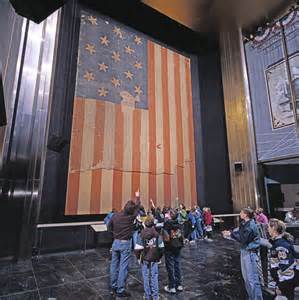There are 142 days until the Iowa caucus,
(and 102 until Christmas.)
September 14, 1964 -
The Irwin Allen sci-fi series Voyage to the Bottom of the Sea, starring Gypsy's love god, Richard Basehart, premiered on the ABC-TV on this date.
This is the longest-running of all Irwin Allen-produced science fiction series. It ran for four seasons, from 1964 to 1968.
September 14, 1965 -
The end of the Civil War was near ...
F-Troop premiered on ABC-TV on this date.
The name of the tribe, to which Wild Eagle belonged, was the Hekawe. In one episode, it was explained that the name came about by two Indians falling off a cliff and one asking "Where the heck are we?" The original name of the tribe, the Fugawe (as in, "Where the Fugawe?"), was rejected by network censors.
September 14, 1965 -
One of the more bizarre sitcoms, My Mother the Car starring Jerry Van Dyke and Ann Sothern (as the car), premiered on this date.
Jerry Van Dyke agreed to star on the series after turning down the lead role on Gilligan's Island and an offer to join the cast of the The Andy Griffith Show.
September 14, 1967 -
Raymond Burr cruised the San Francisco streets with his muscular bodyguard when Ironside premiered on this date (there is no word on whether or not he or any of the cast members were wearing his eponymously named nipple rouge during the shoot.)
In the show, Raymond Burr played a wheelchair-bound hero, which is ironic, since his role in Rear Window, he played a villain fighting a wheelchair-bound hero.
September 14, 1968 -
Yes kids, years before Riverdale, there was The Archies - The Archie Show, based on the comic book series, premiered on CBS-TV on this date.
The Archies was a totally fictitious group derived from this cartoon series. They were made up of studio musicians (including Ron Dante, Toni Wine and Andy Kim). One of the songs from the show, Sugar, Sugar became a big pop hit and, more than 40 years later, is still a part of the normal rotation on "oldies" radio stations.
September 14, 1972 -
America went up Walton's Mountain to visit with The Waltons on CBS-TV for the first time on this date.
In this episode, the family gathers around their new radio to listen to the Edgar Bergen and Charlie McCarthy Show. This was a nod to Bergen, who played the original Grandpa in the series' pilot movie, The Waltons: The Homecoming: A Christmas Story.
September 14, 1978 -
The TV show that helped launch Robin Williams career, Mork & Mindy, premiered on this date.
Many of the gags seen on the show were on-the-spot improvisations by Robin Williams, and later by Williams and Jonathan Winters. The improvisations proved so effective and popular that the series' writers soon included specific sections in the scripts where Williams was allowed to perform freely, marked as "Robin goes off here." If you pay attention to Pam Dawber, you can often see her having difficulty not laughing at the ad libs.
September 14, 1985 -
Everybody started hanging out on the lanai when NBC premiered The Golden Girls on this date.
Betty White was the oldest of the four main actresses. Ironically, with the death of Rue McClanahan, she became the last surviving member of the cast.
Don't forget to tune into The ACME Eagle Hand Soap Radio Hour today!
Today in History:
September 14, 1814 -
Francis Scott Key had composed the lyrics to The Star-Spangled Banner after witnessing the massive British bombardment of Fort McHenry in Maryland during the War of 1812, on this date. Key, an American lawyer and social worker, watches the siege while under detainment on a British ship, and pens the famous words after observing that the US flag over Fort McHenry had survived the 1,800-bomb assault.
The lyrics were alter adopted to the British tune To Anacreon in Heaven, which had also served as Irish drinking song and a number of other songs. The Star-Spangled Banner was officially recognized as the national anthem in 1931.
The 40 feet long flag had been made by Baltimore widow Mary Young Pickersgill and her 13-year-old daughter just a month before the attack. In 1907 the flag was donated to the Smithsonian.
September 14 1849 -
Ivan Pavlov was born on this date. Pavlov was a Russian scientist who discovered that dogs drooled whenever bells were rung. Only after his death were his ideas discredited by a group of Swedish scientists who determined that dogs also drooled when a nice juicy steak was dangled in front of them.
In the decades since, science has repeatedly and conclusively demonstrated that dogs will sometimes drool and sometimes not drool.
September 14, 1812 -
Napoleon's army invaded the city of Moscow, on this date. He began the invasion of Russia in June of that year, hoping to continue his "One Europe, One Cuisine" Tour. The Russian forces kept retreating, burning the farmland as they went so the French wouldn't be able to draw provisions from the land.
The troops were exhausted and hungry by the time they reached Moscow on this day, in 1812. The gates of the city were left wide open. And as the French came through, they noticed that all over the city small fires had begun. The Russians had set fire to their own city. By that night, the fires were out of control.
Napoleon watched the burning of the city from inside the Kremlin, and barely escaped the city alive. The retreat began across the snow - covered plains, one of the great disasters of military history. Thousands of troops died from starvation and hypothermia. Of the nearly half million French soldiers who had set out in June on the invasion, fewer than 20,000 staggered back across the border in December.
September 14, 1901 -
President William McKinley succumbs to his gunshot wound, on this date - the third American president to be assassinated. He had won a landslide victory in the election of 1900. He had gone on a tour of the country, a victory tour, which he ended in Buffalo, New York, where the Pan-American Exposition was being held near Niagara Falls.
McKinley was shaking hands with a long line of people on September 6, when a 28-year-old anarchist from Cleveland named Leon Czolgosz came up to shake his hand. Czolgosz's right hand was wrapped in a handkerchief which concealed a gun. He shot the president twice, hitting him in the abdomen. At first it seemed as though the wound was minor and that McKinley would recover, but he died on this day in 1901. He died, historians believe, because he needed an infusion of fluids and nutrients, and the IV had not been invented yet.
It didn't help matters that Teddy Roosevelt kept peeking into his hospital room, shouting, "Is he dead yet? Am I president yet? Bully, bully!!!"
September 14, 1927 -
Kids, remember what Gertrude Stein said, "affectations can be dangerous and Alice, where the hell is my hash pipe?"
Legendary dancer Isadora Duncan was killed in Nice, France when her long silk scarf got tangled in the rear wheel of the convertible she's riding in on this date. Her neck was broken and an artery severed. Some accounts have her thrown against the pavement and dragged for 100 feet. The freak accident occurred in full view of a number of friends.
Strange but true fact - the mother of famed 40s comedy director Preston Sturges, who was known for her friendship with Isadora Duncan, gave her the very scarf that led to Duncan's freakish death.
September 14, 1936 -
Surgeons Walter Freeman and James W. Watts performed America's first prefrontal lobotomy on a depressed, 63-year-old Kansas woman in Washington, D.C. They successfully create a lethargic dullard, and the duo hails the result for years to come as a medical triumph, despite the fact that two of their next twenty lobotomy subjects end as fatalities.
Here's a easy way you can remember this, "I'd rather have a bottle in front of me than a frontal lobotomy."
September 14, 1938 -
Graf Zeppelin II, world's largest airship, (LZ 130) was the sister ship of the Hindenburg (LZ 129). Her design and construction were nearly identical to her predecessor: at 804 feet in length, these two ships remain the largest flying craft in history. By the time the Graf Zeppelin was completed, it was one of the largest flying craft in history. The ship was christened and made her first flight on this date.
The Graf Zeppelin ultimately flew a total of thirty missions, many for the Luftwaffe. She touched down on her last flight at 9:38 p.m. on August 20, 1939, ending the age of rigid airships.
September 14, 1952 -
Years ago I realized that maybe I made mistake, politically, when I turned a lot of that stuff down. I would go off to obscure places and make movies that six people went to see.
Philip Andre Mickey Rourke, actor, boxer, and small dog fancier, was born on this date.
September 14, 1982 -
Grace Kelly, American-born princess of Monaco, died after a high speed car crash the previous day. She and daughter Princess Stephanie were badly injured when their British Rover 3500 plunged into a ravine, tumbling 45 feet.
In the official version of events, Grace suffered a mild stroke while driving; however, although rumors persist that 17-year-old Princess Stephanie was actually behind the wheel. There is no truth to the rumor that she was engaging in an unnatural act with club-footed Portuguese ballroom dancer with a speech impediment, a three legged farm animal and a silicone-based lubricant.
So dammit, please stop printing these lies.
And so it goes
494




No comments:
Post a Comment